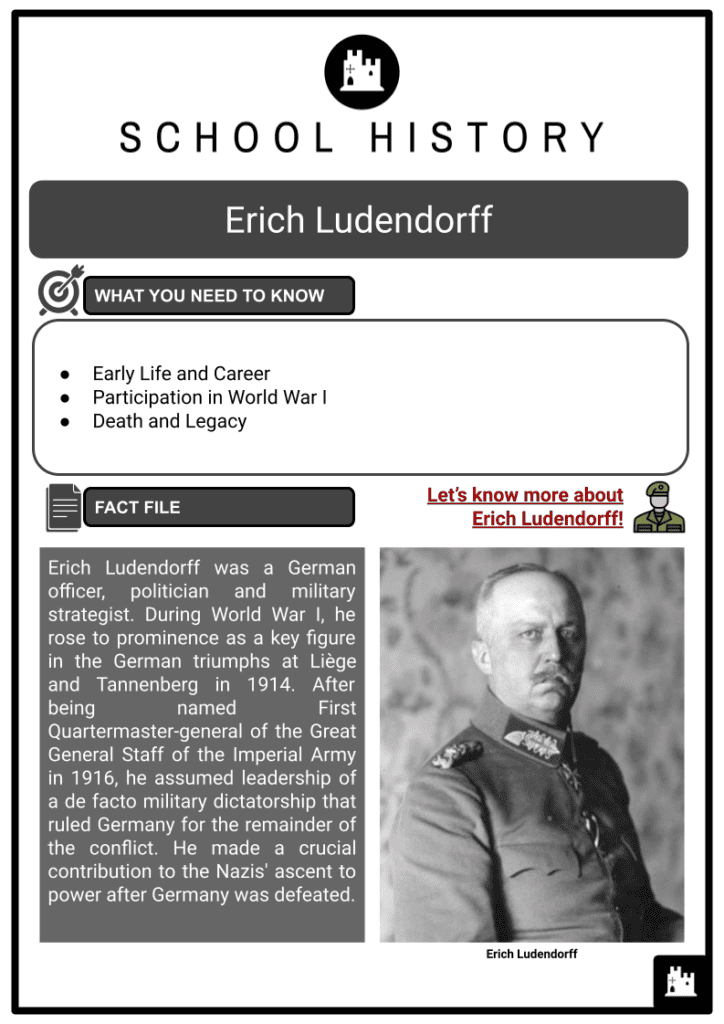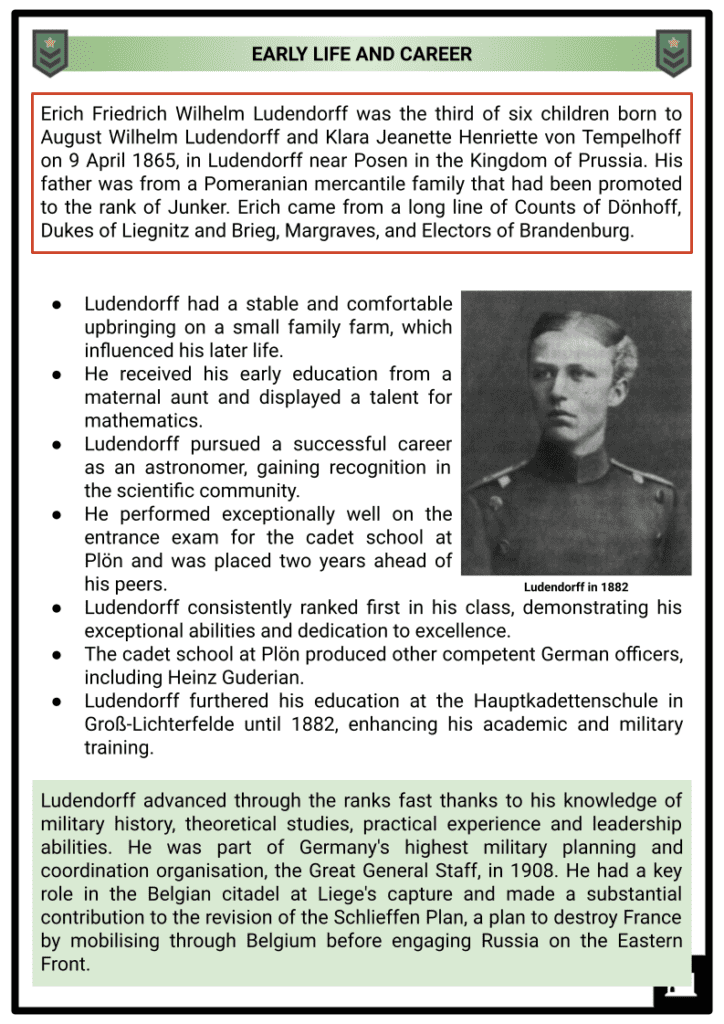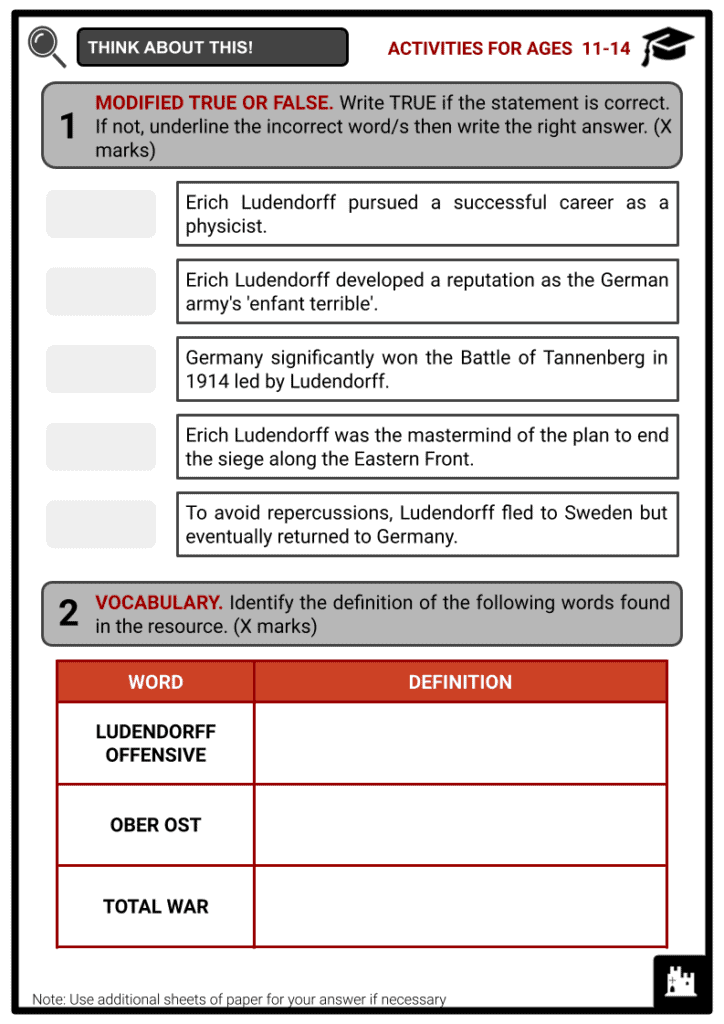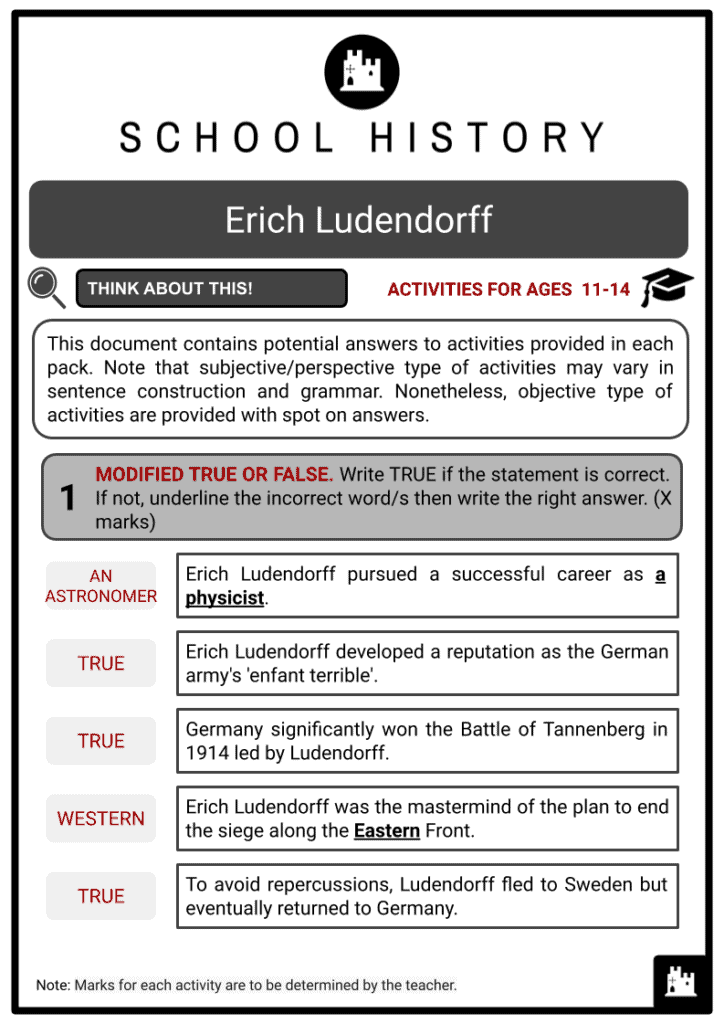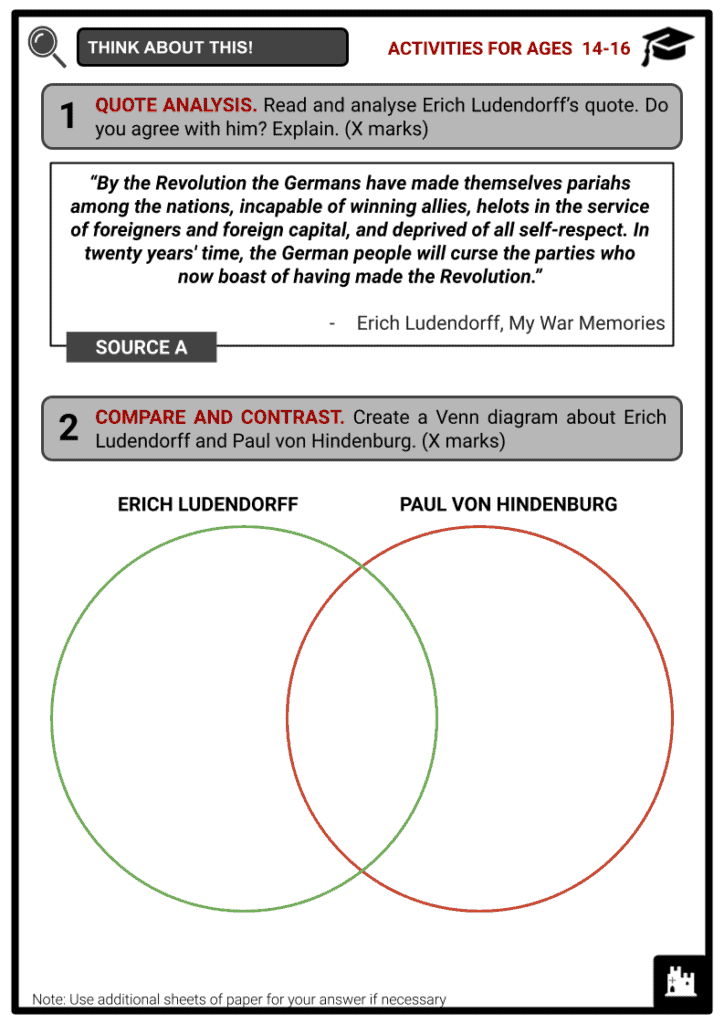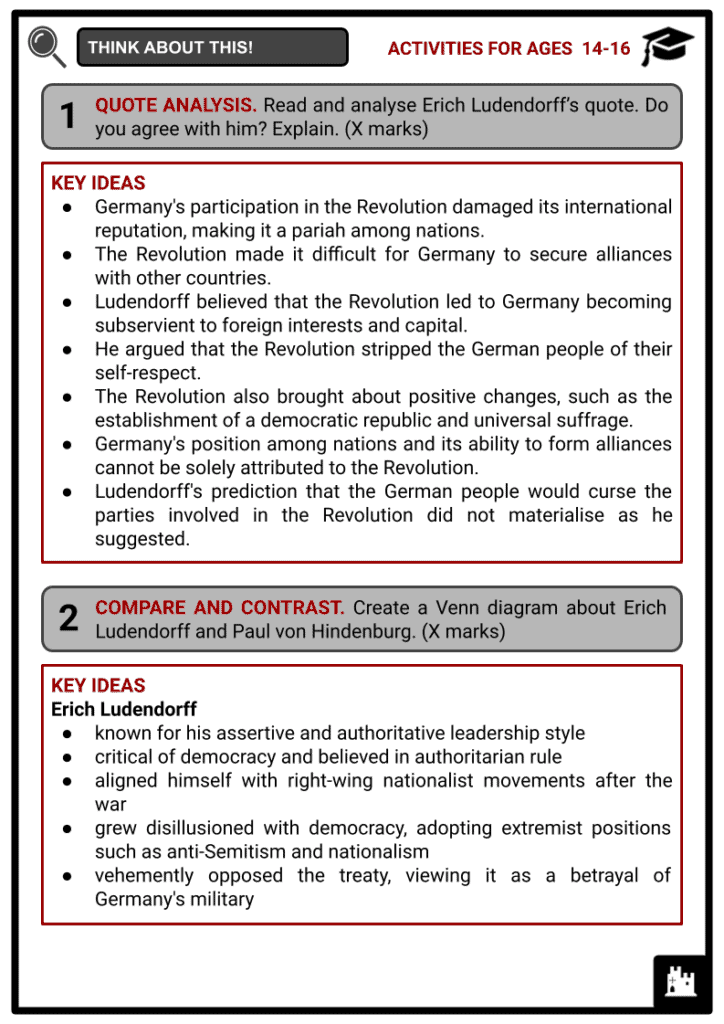Erich Ludendorff Worksheets
Do you want to save dozens of hours in time? Get your evenings and weekends back? Be able to teach about Erich Ludendorff to your students?
Our worksheet bundle includes a fact file and printable worksheets and student activities. Perfect for both the classroom and homeschooling!
Summary
- Early Life and Career
- Participation in World War I
- Death and Legacy
Key Facts And Information
Let’s know more about Erich Ludendorff!
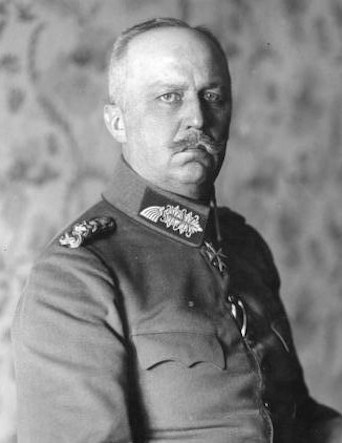
Erich Ludendorff was a German officer, politician and military strategist. During World War I, he rose to prominence as a key figure in the German triumphs at Liège and Tannenberg in 1914. After being named First Quartermaster-general of the Great General Staff of the Imperial Army in 1916, he assumed leadership of a de facto military dictatorship that ruled Germany for the remainder of the conflict. He made a crucial contribution to the Nazis' ascent to power after Germany was defeated.
EARLY LIFE AND CAREER
- Erich Friedrich Wilhelm Ludendorff was the third of six children born to August Wilhelm Ludendorff and Klara Jeanette Henriette von Tempelhoff on 9 April 1865, in Ludendorff near Posen in the Kingdom of Prussia. His father was from a Pomeranian mercantile family that had been promoted to the rank of Junker. Erich came from a long line of Counts of Dönhoff, Dukes of Liegnitz and Brieg, Margraves, and Electors of Brandenburg.
- Ludendorff had a stable and comfortable upbringing on a small family farm, which influenced his later life.
- He received his early education from a maternal aunt and displayed a talent for mathematics.
- Ludendorff pursued a successful career as an astronomer, gaining recognition in the scientific community.
- He performed exceptionally well on the entrance exam for the cadet school at Plön and was placed two years ahead of his peers.
- Ludendorff consistently ranked first in his class, demonstrating his exceptional abilities and dedication to excellence.
- The cadet school at Plön produced other competent German officers, including Heinz Guderian.
- Ludendorff furthered his education at the Hauptkadettenschule in Groß-Lichterfelde until 1882, enhancing his academic and military training.
- Ludendorff advanced through the ranks fast thanks to his knowledge of military history, theoretical studies, practical experience and leadership abilities. He was part of Germany's highest military planning and coordination organisation, the Great General Staff, in 1908. He had a key role in the Belgian citadel at Liege's capture and made a substantial contribution to the revision of the Schlieffen Plan, a plan to destroy France by mobilising through Belgium before engaging Russia on the Eastern Front.
- Due to Ludendorff's steadfast resolve, large funding bills were approved by the Reichstag in 1912 and 1913. However, he was transferred to a regimental command as a consequence of pressure from the Military Cabinet and War Ministry. Due to his unyielding concern about the demands of war, Ludendorff developed a reputation as the German army's 'enfant terrible' throughout the course of his military career.
- He emphasised the value of concentrating superior force in conflicts because of his strong belief that war determined the direction of human affairs. Ludendorff believed that well-planned and -executed battles were essential to winning wars, which influenced his tactical and strategic thinking.
PARTICIPATION IN WORLD WAR I
- Ludendorff served as the Second Army's chief quartermaster when World War I broke out in 1914. He then rose to the position of chief of staff for General Paul von Hindenburg, who led the German Eighth Army and later held the office of president of Germany. A magnificent plan was developed by Ludendorff and Hindenburg to stop the Russian advance on the Eastern Front: encircle and trap the Russians, cut off their supply lines, and make it difficult for them to flee.
- Germany significantly won the Battle of Tannenberg, which took place from 26 to 30 August, 1914. The fight had a significant negative impact on Russia's war effort and resulted in thousands of Russians being captured as prisoners. Additionally, it improved Ludendorff's standing as a military planner and commander throughout Germany.
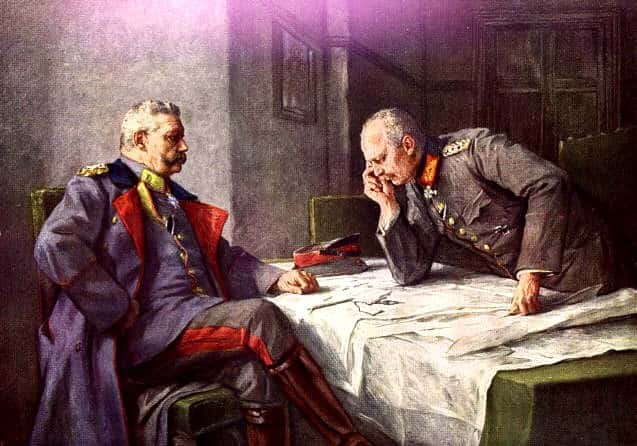
Hindenburg and Ludendorff - Hindenburg and Ludendorff were appointed to command the eastern theatre in October 1914 due to their military successes.
- Ludendorff strongly advocated for giving strategic preference to the eastern theatre.
- In 1915, Ludendorff oversaw a remarkable German military triumph in which German forces broke through Russian lines in May and continued their eastward advance.
- The advance was successful, resulting in the Central Powers gaining control over Russian Poland, Lithuania and Latvia.
- In the territories known as Oberost, which were under the direct rule of the eastern command, civilian interference was minimal.
- The campaign not only expanded German rule into the east but also reinforced Ludendorff's belief in the prioritisation of the eastern campaign.
- Ludendorff was convinced that a well-executed tactical offensive could lead to a strategic decision.
- In 1916, Hindenburg raised him to the rank of quartermaster general, putting him in charge of Germany's military logistics and supply chains as well as serving as his second-in-command. Their successes in the east resulted in the establishment of Ober Ost, a powerful military state of occupation that subsequently influenced Hitler.
- In 1918, during the war, Ludendorff launched the Ludendorff Offensive, also known as the Spring Offensive. He was the mastermind of the plan to end the siege along the Western Front while serving as the German Army's top quartermaster general. The goal was to deal the Allies a fatal blow by tearing apart their defences, destroying their morale, and pressuring them into negotiations with Germany prior to the arrival of American forces.
- On 21 March 1918, Ludendorff initiated a large-scale attack by bombarding the British Army with heavy artillery.
- The attack was followed by a coordinated German assault, which initially achieved success.
- However, logistical difficulties, exhaustion and the arrival of more American troops allowed the Allies to launch counterattacks.
- The Allies integrated infantry, artillery and air support operations, halting the German advance.
- The Battle of Soissons in 1918 marked a successful German offensive.
- In mid-July, Germany's last major offensive of the war came to an end.
- The failure of the offensive marked a turning point in favour of the Allies and dealt a significant blow to Ludendorff's reputation.
- Following the collapse of the German Empire, Ludendorff resigned from his post on 26 October 1918, before the signing of the Treaty of Versailles armistice.
- To avoid repercussions, Ludendorff fled to Sweden but eventually returned to Germany.
- Modern warfare strategies bear a strong resemblance to Ludendorff's inventive and smart military strategies. He popularised the 'total war' concept, which included using a nation's resources and population totally for the war effort. His notions of combined operations, decentralised command structures for quicker battlefield decision-making, and his application of these ideas were widely accepted.
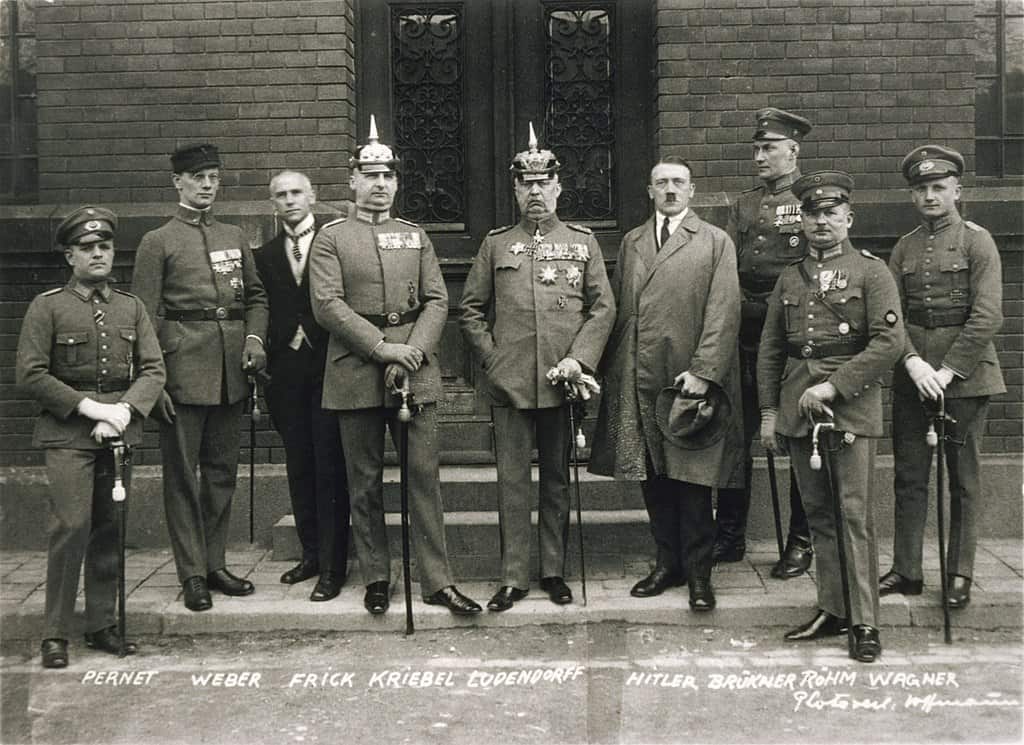
Ludendorff with Hitler and other Nazi leaders - His political activities, however, started to take the stage over his military successes. Following Germany's defeat in World War I, Ludendorff, incensed by the armistice, contributed to the development of the 'stab-in-the-back' theory, which Hitler later used to further the goals of the Nazi Party. This theory placed the responsibility for Germany's defeat on Jews, communists, liberals and democratic parties.
DEATH AND LEGACY
- After his political career began to wane, Ludendorff separated himself from Hitler and the Nazi Party. Despite his prior involvement, he opposed the policies of the state and criticised Hitler's leadership. The opinions of Ludendorff became more and more in line with strong nationalism, mystical ideals and anti-Semitic notions. He wrote a tonne of books in which he expressed his divisive opinions about society, politics and war.
- At the age of 72, Erich Ludendorff passed away in Munich, Germany, on 20 December 1937. One of the most well-known military leaders and strategists in Germany, his passing signalled the end of an era.
- The legacy of Ludendorff is complicated and debatable. He was initially hailed as a great military strategist who contributed significantly to Germany's early victories in World War I, but his later political involvement and affiliations to nationalist movements damaged his reputation. His adherence to anti-Semitic and nationalist views has drawn heavy criticism.
- Ludendorff's contributions to military strategy and tactics were significant and cannot be ignored.
- He revolutionised the concept of combined arms warfare, emphasising the integration of different military branches in battle.
- Ludendorff recognised the crucial role of logistics and coordination in achieving military success.
- His ideas and approaches had a lasting impact and influence on future generations of military leaders.
- While his military achievements are recognised and respected, his involvement in nationalist movements and his espousal of anti-Semitic ideologies have rightfully generated controversy and condemnation.
Image Sources
- https://en.wikipedia.org/wiki/Erich_Ludendorff#/media/File:Bundesarchiv_Bild_183-2005-0828-525_Erich_Ludendorff_(cropped)(b).jpg
- https://en.wikipedia.org/wiki/Erich_Ludendorff#/media/File:Hindenburg-ludendorff.jpg
- https://en.wikipedia.org/wiki/Erich_Ludendorff#/media/File:Bundesarchiv_Bild_102-00344A,_M%C3%BCnchen,_nach_Hitler-Ludendorff_Prozess.jpg

